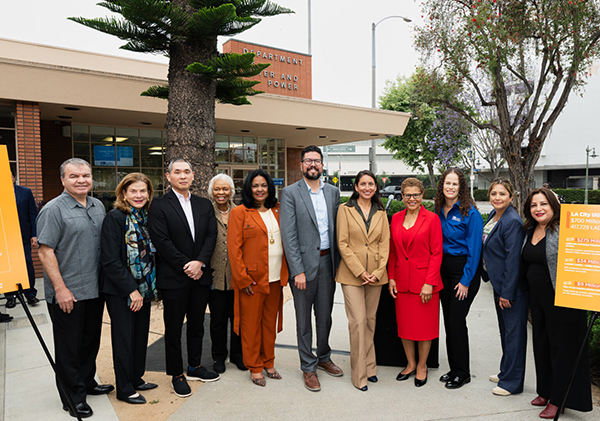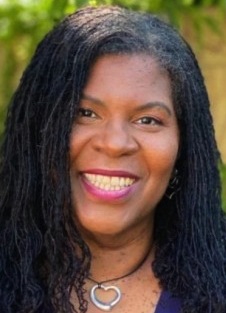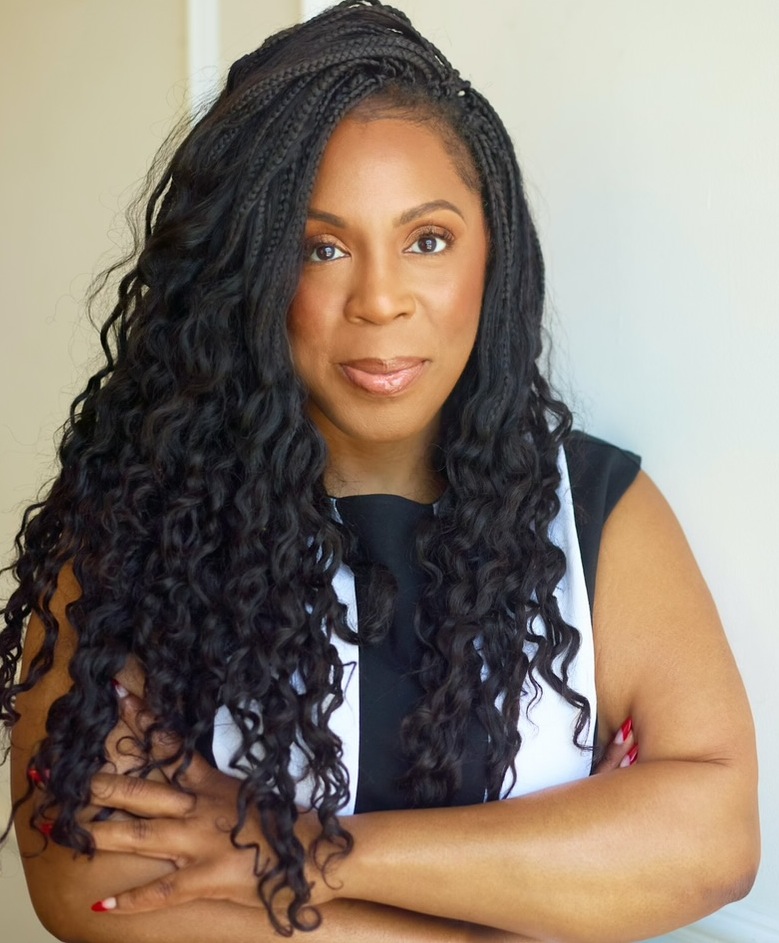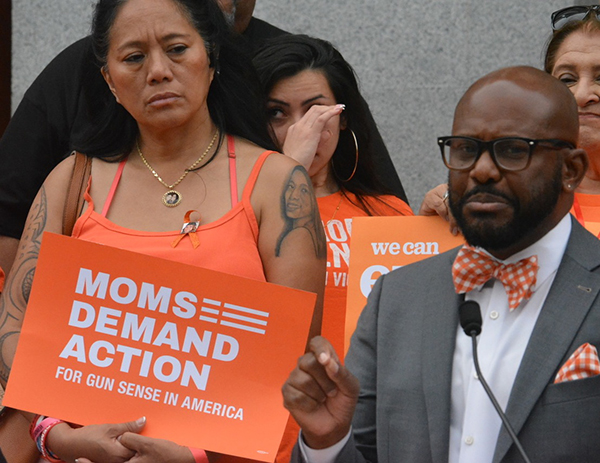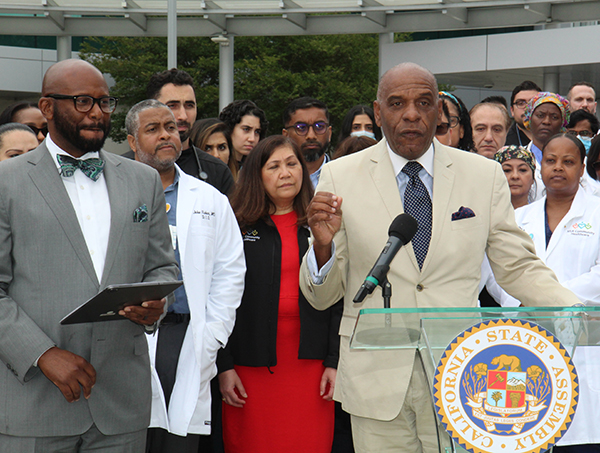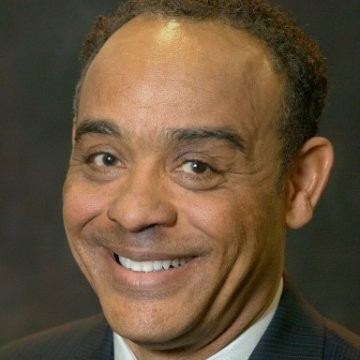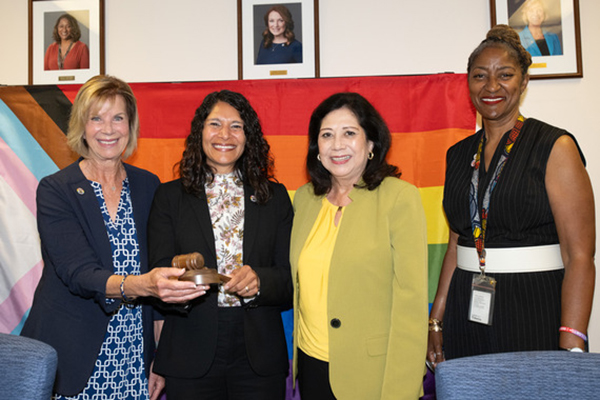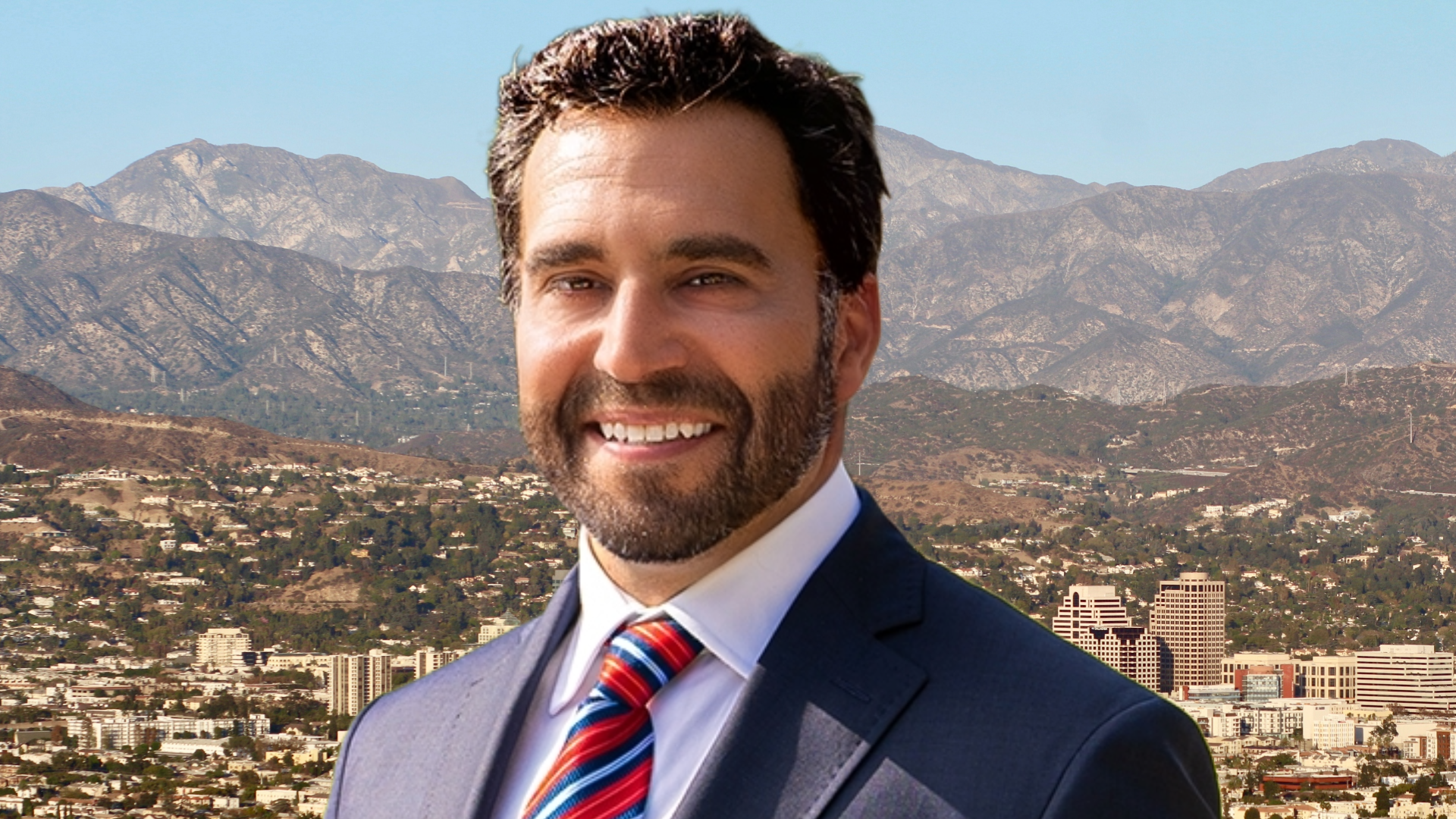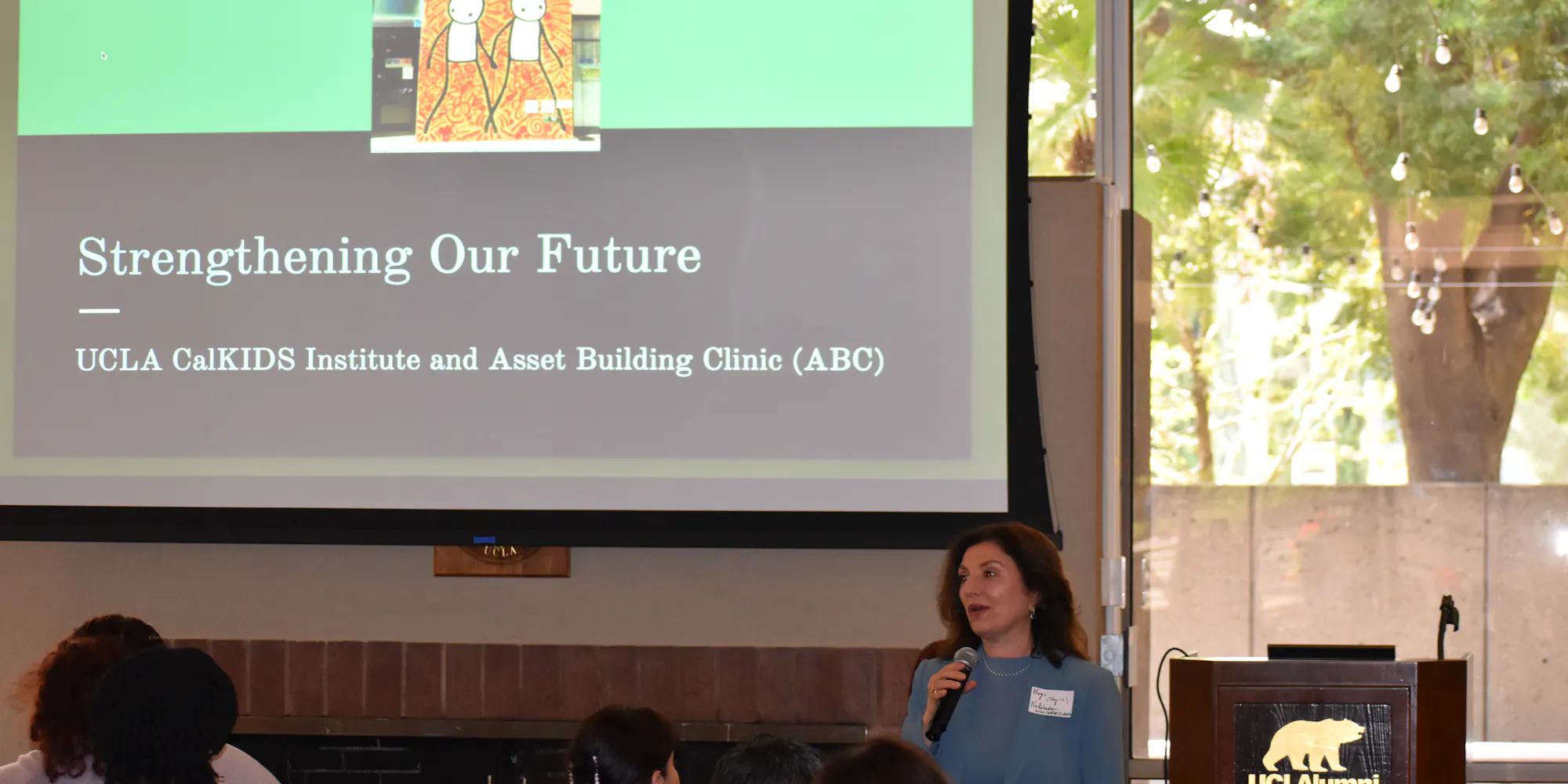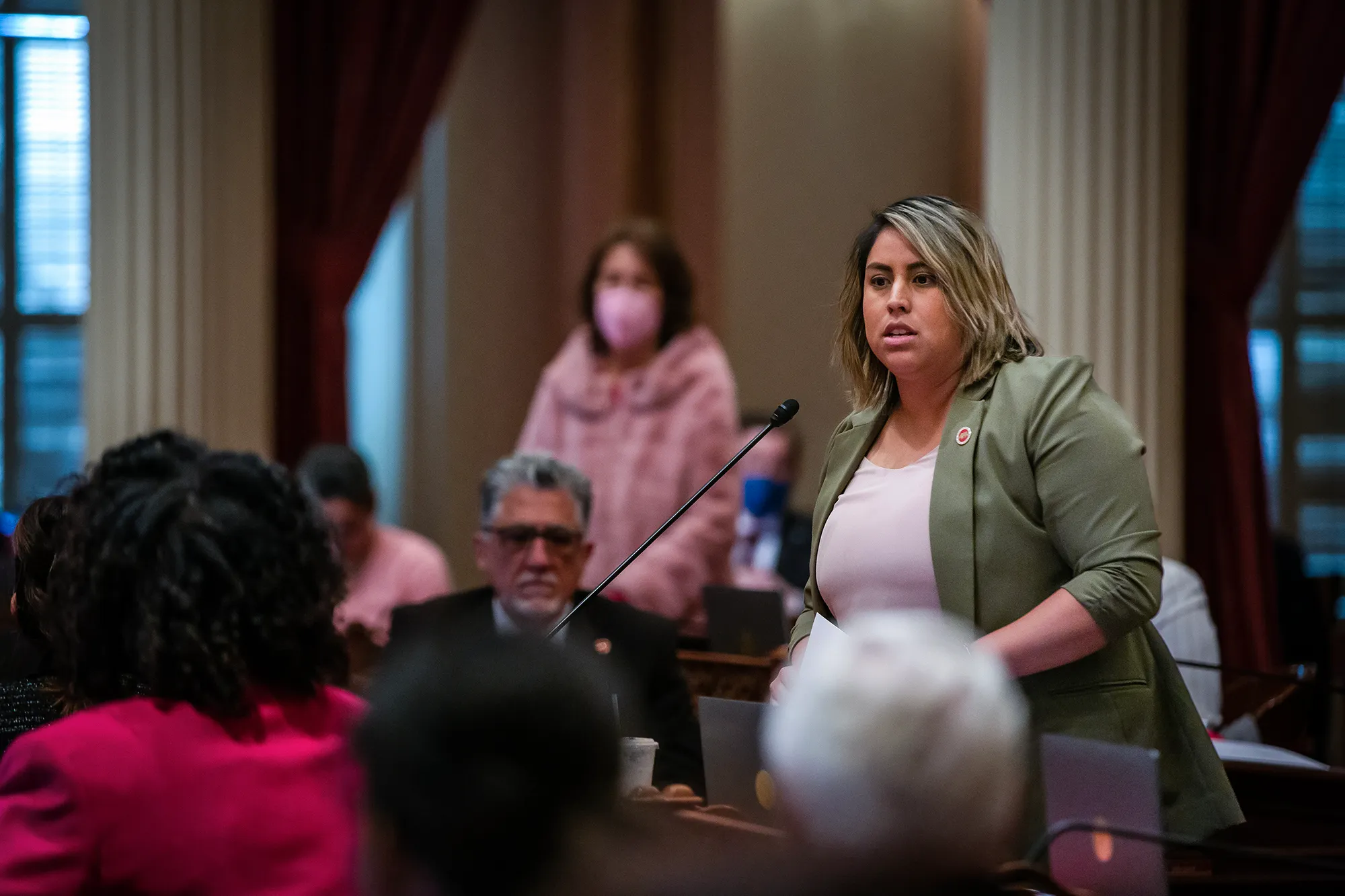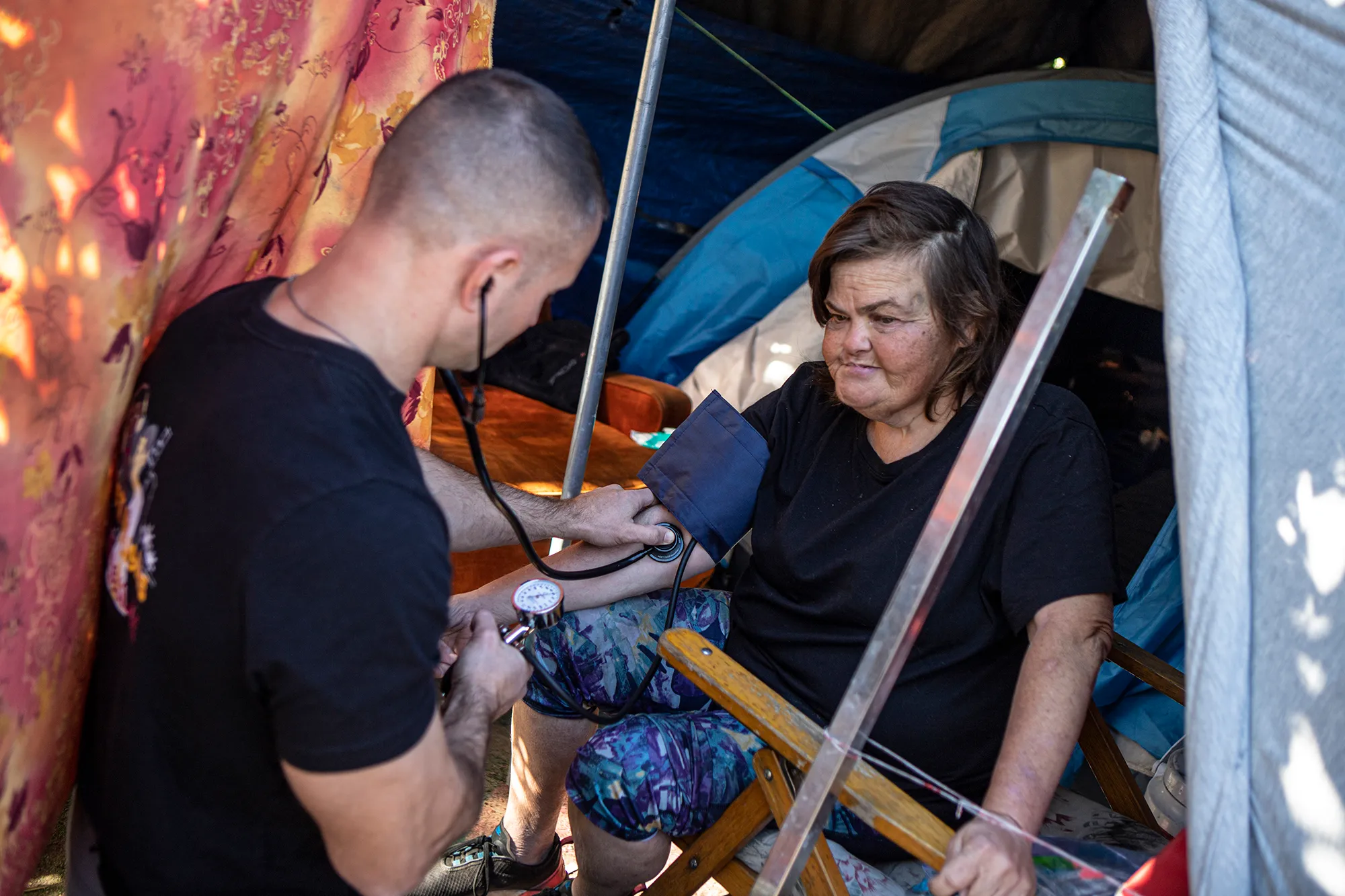Don’t Congratulate Democratic Darling Laura Friedman Just Yet
Departing Rep. Adam Schiff has been accused by his party’s progressives of campaign tactics that allowed him to face GOP political neophyte Steve Garvey in the November U.S. Senate election. But did he also open the gate for gay Republican Alex Balekian to possibly pull off a surprise upset for his former congressional seat?
By BRANDON ROSS GARCIA
WEHOONLONE.COM
Alex Balekian wasn’t supposed to make it this far.
The primary election system itself was designed to prevent Republicans like him from rising above a crowded field of Democratic candidates, as he did in March when he came in second place in the race to represent West Hollywood, his hometown Glendale and the rest of California Congressional District 30 on Capitol Hill.
An outspoken outsider dismissed by many as a lost cause, Balekian instead outperformed more than a dozen Democratic opponents with names bigger and pockets deeper than his. He will now face Assemblywoman Laura Friedman in the Nov. 4 general election.
Naysayers claim his victory was an anomaly — that he’s reached the top of his bounce. Balekian says they haven’t grasped just how disillusioned California has become with its one-party rule.
For the first time in decades, WeHoans can choose something other than the status quo when they go to the ballot box.
In November, they’ll have the option of picking a voice in Congress who doesn’t think like Rep. Adam Schiff or Laura Friedman or any of the other rank-and-file Democrats who all share the same positions and platforms.
Balekian saw cracks growing in the blue wall around California Congressional District 30 when few others did. Now, he says, he sees an opening — a plausible path to victory. He lays out his roadmap to Washington D.C. in this exclusive interview with WEHOonline.
Q: Tell me about some of the people you met on the campaign trail.
A: They are exasperated, unhappy about what life has become, feeling frustrated but also lost because they don’t see an obvious way out, a good focus for their energies.
Q: What issues gave them angst?
A: High cost of living, homelessness, crime that’s unpunished — these were never the norm. I’ve been here; I just turned 45. And it seems like things are only getting worse, and speaking out against it gets you labeled a Nazi or worse, when all you really want to do is say, “How did the neighborhood that I grew up in become so tarnished?”
Q: When we last spoke, you told us that the state GOP wasn’t providing much support to your race. Has that changed?
A: That has not changed. The Republicans see it as a done deal, and the Democrats see it as a done deal. And we’re happy with people thinking of it that way because we defied expectations once. If you look at every major news outlet, they didn’t even mention my name as a candidate. They said it was going to come down between two of the big four Democratic candidates who were running. So I’m quite happy that people are writing it off because I love crashing a party, and that gives us an opportunity to crash the party in a big way.
Q: And do you think that they’re going to be putting in some more resources for the general election?
A: No, I don’t believe they will. We are speaking individually to people, but as far as the party, I don’t believe that they are prioritizing this. At some point, when somebody sees how much traction we’re gaining and somebody does a poll and sees that we are unexpectedly tight rather than the bloodbath that people are expecting, then I think people will take notice. But by that time, we’ll be establishing our own momentum.
Q: How did you think you were going to do on election night in March?
A: I knew exactly where I was gonna come in. I said if we get at least 18, ideally 20 percent of the vote, then we’re going to come in top two. And that’s exactly what we did. So I am a math nerd. I am a numbers geek. I am a proud numbers geek, and I sat down with the numbers multiple ways and charted our path to victory, and we did nearly exactly as I had calculated. And I sat down similarly with the numbers for a month after March 5th, and we have plotted our course, and there is a clear path to victory, and my math nerd numbers proved it.
Q: What’s the path look like from here to November?
A: The path from here to November is not a single strategy. We have a very diverse district, as you know. We have bedroom communities like Glendale, Burbank, Sunland. We have denser, more apartment living of single people—Hollywood, West Hollywood. And you have Sun Valley area with more Spanish-speaking populations. You have Silver Lake with more very progressive populations. So it’s not one single strategy, and we are developing different strategies for the different neighborhoods of the district, and that is how we’re going to achieve this victory.
Q: Are there competing interests between populations in the district? Does what one group needs differ from what another one needs?
A: On the surface, I think you might say that certain groups have different views from other groups, or they have competing interests, which is why I kind of like to take it back to an idea level. My ideas, my ideals are constitutional rights, constitutional liberties. We all want freedom of speech, to be able to say our minds freely without being penalized. We all want freedom of religion, to believe in our faiths. We all also want due process over things that we do—vaccine mandates, abortion, things of that sort. So I think bringing this back to what makes us American—our Constitution, our constitutional liberties—that is what I want to bring it down to. And I think when you frame it that way, these “conflicting” groups suddenly start aligning more when you reconcile their statements with our constitutional liberties.
Q: How would you describe your ideological stance?
A: I have always been fiscally conservative and socially moderate. That is the household that I grew up in, and in fact, that is what I think most immigrants who come to this country are all about because they want to live the American dream, which means you have to work hard, save your money, and save up to buy your home, leave something for your family.
So that’s where the fiscally conservative part comes in. You don’t want to spend more than you make, which is precisely what our government officials, especially Laura Friedman, have done, right? They want to increase our taxes, and they want to spend, spend, spend.
The socially moderate part is being conservative enough where you want to see law and order, where you want to see criminals punished, but not so conservative that you want to run people’s lives in their own homes, run their personal decisions. I am not OK with that.
I have been disenfranchised with my Republican party for the last 20 years, and frankly, I am now the future of the Republican party because we are getting moderate Democrats that are quite sick of the progressive social agenda that say, “Hey, I do want to see law and order. I do want to see criminals punished.”
Q: What about foreign policy —Israel and Ukraine? How much did they come up when you were campaigning?
A: The biggest foreign policy part that came up is why are we having to pay through the nose with our tax dollars? Why is our money going to other countries, specifically to this two-year endless war in Ukraine, when we have more needs here? We have homeless veterans that aren’t being housed, but again, you’re using our money to house immigrants, illegal immigrants that have just come in two weeks ago and are getting free room and board and credit cards with $600 on them in New York and are getting free health care here in California.
Q: Do you have any broad solutions to the border crisis?
A: We should treat this country like we treat our own home: operate it on a budget, keep it secure, keep the door closed. If somebody wants to come in, you get to know that person. Let in whoever is going to be a good person and not let in those who are not. So I think it is high time that we actually had a points-based immigration system, same as you would apply for a job or apply for college, where it’s your work experience or your language proficiency or your specific skill that you’ve learned in school that would be good for that job.
We should have a points-based system that is transparent, that everybody can apply to, and you get ranked on a list. And then we decide how many people—half a million, one million—that we’re going to let in every year. And it again depends on what kinds of skills the country needs.
However, in order to have an orderly system like this, you need to secure the border. Secure it so that nobody comes in because people who jump the line are disrespecting the system, and it doesn’t give people the incentive to participate in that system.
Q: What would you tell a WeHo voter who is on the fence about Laura Friedman?
A: What I would say is, well, her policies have destroyed the California dream. Her progressive policies of being weak on criminals, her policy of increasing property taxes.
She co-authored ACA1, which is going to place a ballot measure to make it easier to raise our property taxes. And for people who are already complaining that the rents are too high, if the property taxes on your building go up, that will translate directly into higher rent.
Her all-electric policies, although they sound good on paper, have not resulted in affordable, renewable energy. All they’ve done is overload the electrical grid. The demand is much higher than the supply, and they’ve increased electricity rates by at least 50% for everyone. So it’s short-sighted, pie-in-the-sky ideas like this.
She’s also said we would all be better off if there were fewer cars driving, and that’s why she has espoused more bike lanes and fewer parking spaces for apartment developments. This is increasing traffic. It is building high-density apartment buildings without devoted parking spaces because her law allows cities to relax those parking requirements. Her vision for a carless city is simply causing more congestion and more problems for people.
Q: West Hollywood is going through that right now with the current Builder’s Remedy developments that are way past the height restrictions and lacking a lot of parking.
A: That is her bill that allows for that. She wrote it. It’s AB 2097.
Q: Assemblymember Laura Friedman made a couple of unsubstantiated claims about you in our interview with her — that you were part of far-right protestS at a local school, that you had been arrested. She portrayed you as a believer in the fringe idea that kids are being groomed with an LGBTQ+ agenda in our schools. What’s your take on that?
A: I will clear the record and correct the blatant lies that Laura Friedman said about me. I have video proof of me going to a school board meeting and saying that if the math proficiency scores and reading proficiency scores are less than 50%—currently at my alma mater, Hoover High School, math proficiency for graduating high schoolers is 24%—I said if your students are not performing up to snuff, you really shouldn’t be teaching extraneous topics other than reading, writing, and math in order to produce well-adjusted, well-educated students with marketable job skills.
Also, what I have said, again on video and we have a record of this, is children who display gender dysphoria have diagnosable psychiatric conditions. These should be diagnosed and treated with counseling rather than railroading these confused children and their anxious parents to irreversible hormone treatments and surgeries that have not been grounded in science and, in fact, have now been rejected entirely by the European Union and the UK National Health Service.
So her talk about me saying grooming in schools is completely fabricated. You know, I’m a physician. This is not my opinion. I am quoting the medical literature.
Q: What about your alleged “arrest?”
A: I was absolutely not arrested. Let’s just say that for the record: I was not at that school board riot where people from out of town came dressed in helmets ready for ruckus. I was not there, let alone arrested.
Q: Are negative campaign tactics part of your plan, too?
A: I think it’s obvious. The fact that I was focusing on the issues is how she and I are going to be different. I think the fact that she focused on attacking me shows that she has nothing tangible to campaign on. We know that the policies that she espoused, that she voted for, rusted our Golden State.
And so, I’m going to focus on the issues. I was a nerd who loved solving word problems in school, and now I’m essentially the same. A patient comes and tells me their word problem, their symptoms, and I solve it. I give them their diagnosis and I tell them, “This is the way out of this.” So, what I’m doing is what I’ve always known to do, which is hear somebody out, figure out a solution, and carry through. And that is why people are campaigning for me, and that is why politicians who got us into this mess have nothing to campaign on except for personal attacks and empty identity politics.
Q: Final words?
A: There are things that I will never vote on: an imbalanced budget, deficit spending, and also an abortion ban. An abortion ban is not the government’s place, and we should never spend more than we make. So those are two things that I will never vote for: deficit spending and an abortion ban. And there is this misconception that gays somehow need to be Democrats and need to vote liberally. My husband is on the board of the Log Cabin Republicans. There are plenty of conservatives in West Hollywood, and by conservatives, I mean people who believe in lower taxes, safer streets, personal responsibility, self-reliance, and government staying out of your life because you can do things better. That’s just what I want — to clear that misconception of how do you reconcile being gay and Republican. It’s easy.
Just looking at the returns in West Hollywood, there’s a real conservative lean, and it’s not this solid blue block that it’s often described as. And they’ve categorically shown that they reject progressive policies like those of Mayor Sepi Shyne. And because these long-held stereotypes of people aren’t truly there as far as gays are concerned. The Republican Party in 20 years is going to look different from the Republican Party now, which did 20 years prior.
Q: What do you think it’s gonna look like in 20 years?
A: I think in 20 years it’s going to look like people like me. It’s going to look more like a lower tax, smaller government. The gay marriage debate will be over, the abortion debate will be over. We will all say this is not the government’s job to control people’s lives. And that is how I think it’s going to be. It’s just going to be a party of people who want to work hard, who want to keep their resources, who want to see clean streets and safe neighborhoods, and who want to be respectful neighbors without getting into their neighbors’ household business and vice versa.
Ryan Sabalow is a Digital Democracy reporter for CalMatters. He can be reached at ryan@calmatters.org
CalMatters.org is a nonprofit, nonpartisan media venture explaining California policies and politics. Published with permission of CalMatters.

